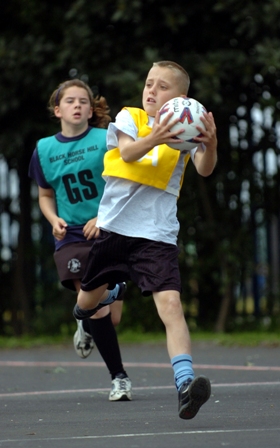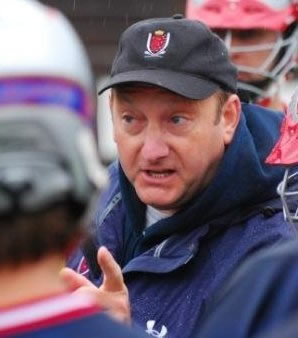
Agile, balanced, coordinated
Putting the fun in FUNdamental
Not everybody who comes to coaching is a sport scientist and many parents and ex-players focus exclusively on the techniques of the sport they are delivering. Phil Collier argues that more attention should be given to fundamental movement skills and explains how the UK’s coaching agency is providing support to coaches to help them do it.

Agile, balanced, coordinated
Most coaches, and indeed all those involved in sport, at all levels will agree on how important it is for children to have an opportunity to learn the basic skills of movement. Learning these skills will aid their participation in sport and as these are also general life skills they will serve them well in other spheres. At Sportscoach UK we call these skills the ‘FUNdamentals of Movement’ and believe that acquiring them will help children develop a variety of movement patterns, as well as spatial and self-awareness skills.
But what exactly are the FUNdamentals? Put simply, the movement patterns associated with the most fundamental stage of development are often likened to other key skills children learn and can be described as the physical literacy skills we should all have the chance to learn. Physical literacy refers to the acquisition of, and the ability to, learn and use a wide variety of basic physical skills. The skills themselves are: balance, which is defined as a state in which a body or object remains reasonably steady and stable; coordination, the skilful and balanced sequencing of the body and its segments to produce movement of the body; and agility, which is the ability of the body to change direction and stop and start quickly and accurately while maintaining balance.
All of these underpin the generic skills used in many sports such as running, jumping, throwing, catching and striking. Developing skills that provide a base for future development, as opposed to early sport-specific skills, enables children to develop their athleticism and gives them the basis for future involvement in sport or other forms of recreation. Rather than learn how to pass a rugby ball at the age of seven children should learn to throw and catch any and all types of ball; and other things.
One of the key concepts surrounding FUNdamentals of Movement is play and the importance of fun and enjoyment when learning physical skills. Athletes themselves comment on how the importance of fun and learning general movement skills influenced their love of sport and, possibly, their eventual participation in elite sport. Gail Emms, international badminton player and Olympic Games’ silver medallist, has been quoted as saying: “Sport has been an integral part of my life for as long as I can remember. My parents always encouraged me to try a variety of sports. I think it is important to give children such opportunities. Even though I am a professional badminton player, I still enjoy other sports when time – and coaches – permit.”
As well as learning the basic skills of movement during the FUNdamentals stage of child development, children learn early social behavioural and team development skills. Research shows early participation and enjoyment of sport will reduce drop out in youth sport and contribute to a healthy, active life and valuable, rewarding participation in sport in the future. “I have seen many young performers in lessons, from gifted and talented sessions all the way up to academy level,” commented Graeme Foreman, one of the co-authors of An Introduction to the FUNdamentals of Movement, “and there are many who simply lack the fundamental literacy skills needed to develop their sporting prowess further, either through a participation or performance pathway.”
To help coaches, parents and teachers Sportscoach UK has invested in a programme of learning and resources for coaches who wish to develop their observational and analytical skills, knowledge of good movement patterns and their awareness of the FUNdamentals stage of long-term athlete development (LTAD) and the details are available at www.sportscoachuk.org
The Leisure Review, November 2009
© Copyright of all material on this site is retained by The Leisure Review or the individual contributors where stated. Contact The Leisure Review for details.
Download a pdf version of this article for printing
